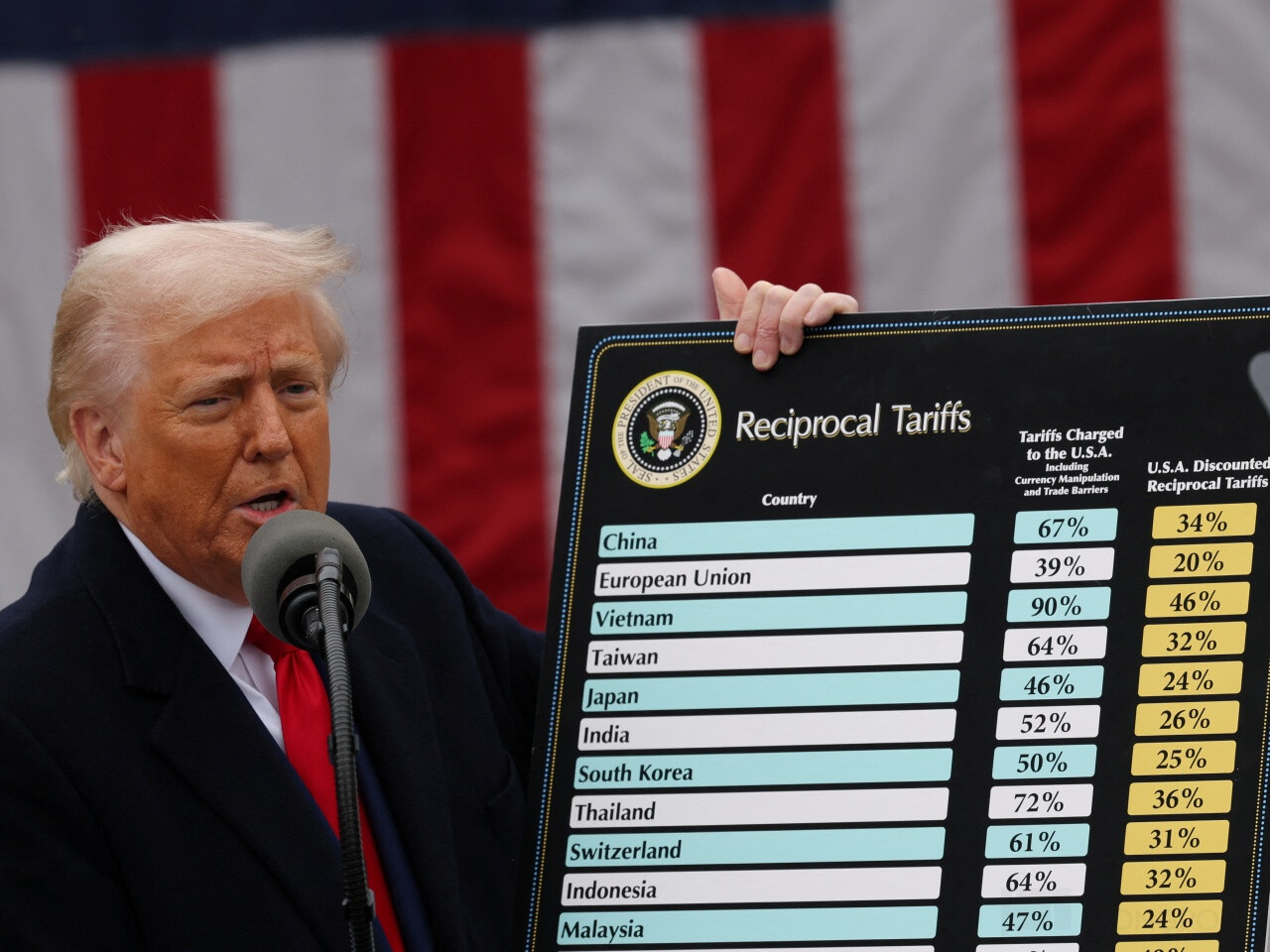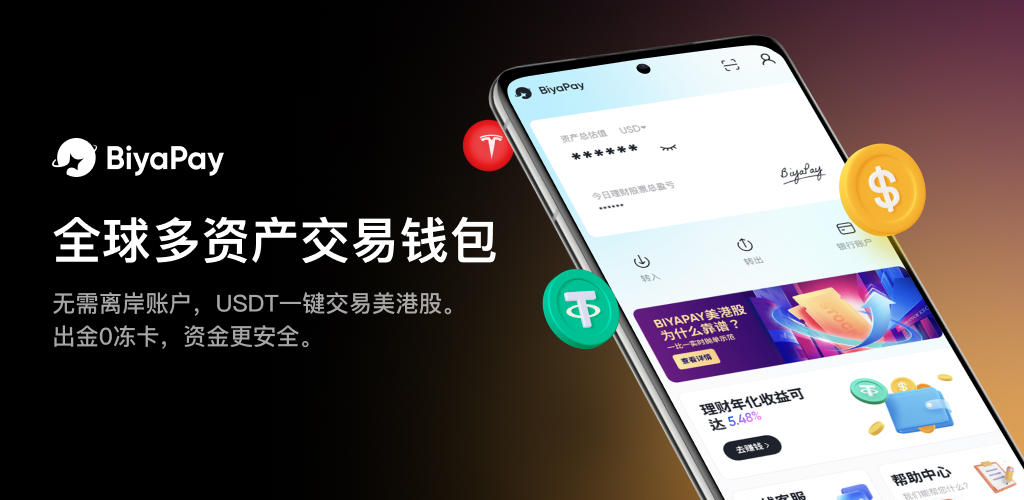- EasyCard
- Trade
- Help
- Announcement
- Academy
- SWIFT Code
- Iban Number
- Referral
- Customer Service
- Blog
- Creator
Global market horror night: Why did Trump's "reciprocal tariffs" make Apple bleed?
When US macro data showed unexpected resilience, the market should have breathed a sigh of relief, but Trump’s executive order completely reversed the situation. On April 2nd local time, US President Trump signed two Executive Orders, announcing the implementation of so-called “reciprocal tariffs” on global trading partners, setting a “minimum benchmark tariff” of 10%, and imposing higher tariffs on countries such as Vietnam and India. This policy, known as the “largest trade protectionism measure in 90 years,” instantly triggered a violent shock in Financial Marekt - Apple’s stock price plummeted by 7.58%, Tesla fell by more than 6%, Bitcoin plummeted by 3%, and New York copper futures plummeted by 4%. What kind of economic logic is hidden behind this storm? How should companies respond to this tariff tsunami?
Eye of the Storm: The True Face of Trump’s Tariff Policy
The core of this new policy is “reciprocal tariffs”, which requires trading partners to maintain tariff levels consistent with those of the US. On the surface, the benchmark tax rate of 10% seems mild, but the devil is in the details: Vietnamese products face a tariff of 46%, Indian products face a tariff of 26%, and the tariff on major iPhone may soar to 54%. This hierarchical design exposes Trump’s true intention - not simply pursuing trade balance, but precisely targeting key nodes in the supply chain transfer.
It is worth noting that the market initially misjudged the situation. When the benchmark tariffs were announced, risk assets rebounded for a while, and investors mistakenly thought that “all the bad news was out”. However, Trump’s subsequent tariff chart completely shattered the illusion: the overseas production bases of multinational companies such as Apple were all locked, and most of the previously established strategies suffered devastating blows. This emotional switch from hope to despair is the psychological root of the market’s violent fluctuations.

Rivers of blood: why are tech giants the first to suffer?
Apple’s experience can be regarded as a textbook case. After the 2018 trade war, Apple spent six years relocating some iPad, AirPods production lines to Vietnam, and iPhone production to India. However, the new tariffs directly target these two alternative bases, which is equivalent to blocking Cook’s retreat. More cruelly, the original 20% tariff iPhone may be superimposed by 34%, and the final tax rate will reach 54% - this means that the cost of each iPhone will increase by nearly $200, which is enough to swallow most of Apple’s profits.
From a deeper perspective, this crisis has exposed the fragility of the global supply chain. Multinational companies have relocated their production lines to reduce costs, but political risks have always been with them. Tesla’s plunge is also intriguing: its Shanghai Gigafactory contributes half of the world’s production capacity, and the raw materials such as copper and lithium needed for electric vehicle batteries are the targets of the plunge in New York copper futures. These cases reveal a cruel reality: in the era of trade protectionism, companies with longer industrial chains and higher levels of globalization are more likely to become victims of political games.
Emergency Response Strategies for Investors: A Practical Guide to Crossing the Tariff Storm
When the tariff tsunami sweeps through the market, investors must shift from passive defense to active breakthrough. Firstly, in terms of positioning reconstruction, investors should reduce their holdings of assets highly dependent on the global supply chain (such as Apple’s industrial chain concept stocks), and instead focus on regional winners, such as Mexican manufacturing companies (suppliers of Tesla’s new factory), military and agricultural industries protected by policies, as well as targets benefiting from the return of industries such as US domestic semiconductors (applied materials) and infrastructure (Nucor Steel).
The hedging strategy is also crucial and can build a three-layer defense system: The first layer uses VIX futures to hedging systemic risks; the second layer hedging supply chain rupture risks through put options on commodities such as copper and lithium (NYMEX copper options); The third layer Allocate Bitcoin and gold (3:1 ratio), taking into account the high liquidity of digital assets and the inflation hedging properties of gold. In addition, investors can efficiently execute these strategies with the help of BiyaPay. BiyaPay supports global payments, international remittances, as well as trading in US stocks, Hong Kong stocks, and digital currencies, making it an ideal choice for novice and experienced investors.
Political arbitrage opportunities should not be ignored. Investors should closely monitor the May US CPI data. If inflation exceeds expectations, it may weaken the tax policy. At the same time, they can pre-position Listed Companies in states affected by tariffs (such as First Energy in Ohio) to game policy compensation. The reverse operation strategy is suitable for oversold stocks. For example, if Apple falls below a key support level due to tariff shocks, it may trigger a “too big to fail” government intervention.
It is worth noting that traditional valuation models (such as PE) may fail in the context of a trade war. For example, Tesla’s 18 times PE seems reasonable, but if the constrained country implements retaliatory tariffs, its factory valuation may return to zero. Therefore, investors need to use more flexible trading tools, such as depositing digital currency (USDT) into the multi-asset wallet BiyaPay, and then withdrawing fiat currency to invest in US stocks at Jiaxin Securities, or directly searching for stock codes on the BiyaPay platform for trading, adjusting positions in real-time to cope with market fluctuations.

This crisis is essentially a restructuring of the capital pricing system - geopolitical Risk Premium has become a new valuation multiplier. Savvy investors will not wait for the storm to pass, but will use efficient tools (such as BiyaPay) and dynamic strategies to seize the opportunity in the new environment.
Summary: Survival rules in the era of trade protectionism
The “reciprocal tariff” policy launched by the Trump administration has not only overturned the global trade pattern, but also reshaped the operating logic of Capital Markets. This tariff storm has exposed the fatal weakness of the global supply chain - the sharp decline of tech giants such as Apple and Tesla proves that pure commercial efficiency considerations are no longer reliable in the face of political games.
For investors, this means a complete shift in thinking: from global allocation to regional layout , from single market dependence to diversified hedging. In the short term, defense systems can be built through VIX futures, commodity options, and encrypted assets; in the medium and long term, attention should be paid to the beneficiaries of industrial return and policy exemptions. More importantly, traditional valuation models must incorporate geopolitical Risk Premium , otherwise the true value of the enterprise will be seriously misjudged.
In this process, efficient investment tools will be a key enabler. Global multi-asset trading platforms like BiyaPay can better assist investors in quickly adjusting their strategies in volatile markets.
Historical experience shows that trade protectionism is often persistent rather than cyclical. Therefore, investors must recognize that this is not a short-term fluctuation that can be “survived”, but a turning point that requires a new survival strategy. Only by actively adapting to this new world dominated by geopolitical pricing can we hold onto our wealth in the smoke of trade wars and even discover new opportunities.
*This article is provided for general information purposes and does not constitute legal, tax or other professional advice from BiyaPay or its subsidiaries and its affiliates, and it is not intended as a substitute for obtaining advice from a financial advisor or any other professional.
We make no representations, warranties or warranties, express or implied, as to the accuracy, completeness or timeliness of the contents of this publication.




Contact Us
Company and Team
BiyaPay Products
Customer Services
is a broker-dealer registered with the U.S. Securities and Exchange Commission (SEC) (No.: 802-127417), member of the Financial Industry Regulatory Authority (FINRA) (CRD: 325027), member of the Securities Investor Protection Corporation (SIPC), and regulated by FINRA and SEC.
registered with the US Financial Crimes Enforcement Network (FinCEN), as a Money Services Business (MSB), registration number: 31000218637349, and regulated by FinCEN.
registered as Financial Service Provider (FSP number: FSP1007221) in New Zealand, and is a member of the Financial Dispute Resolution Scheme, a New Zealand independent dispute resolution service provider.



















